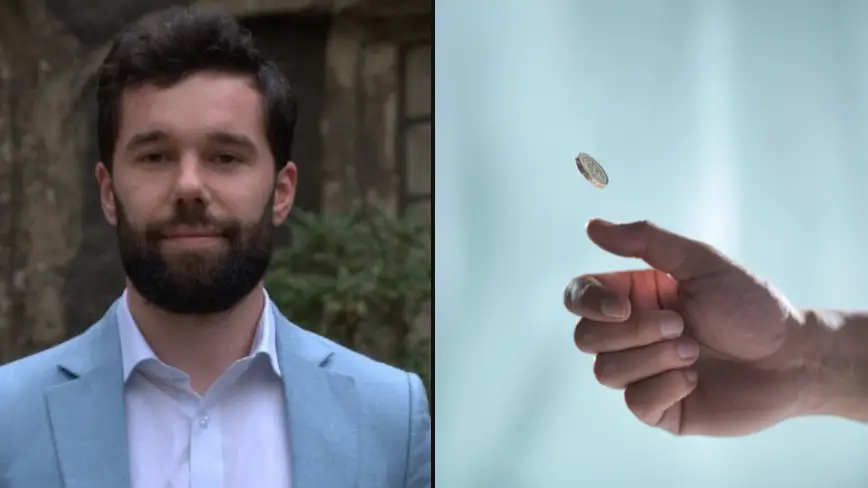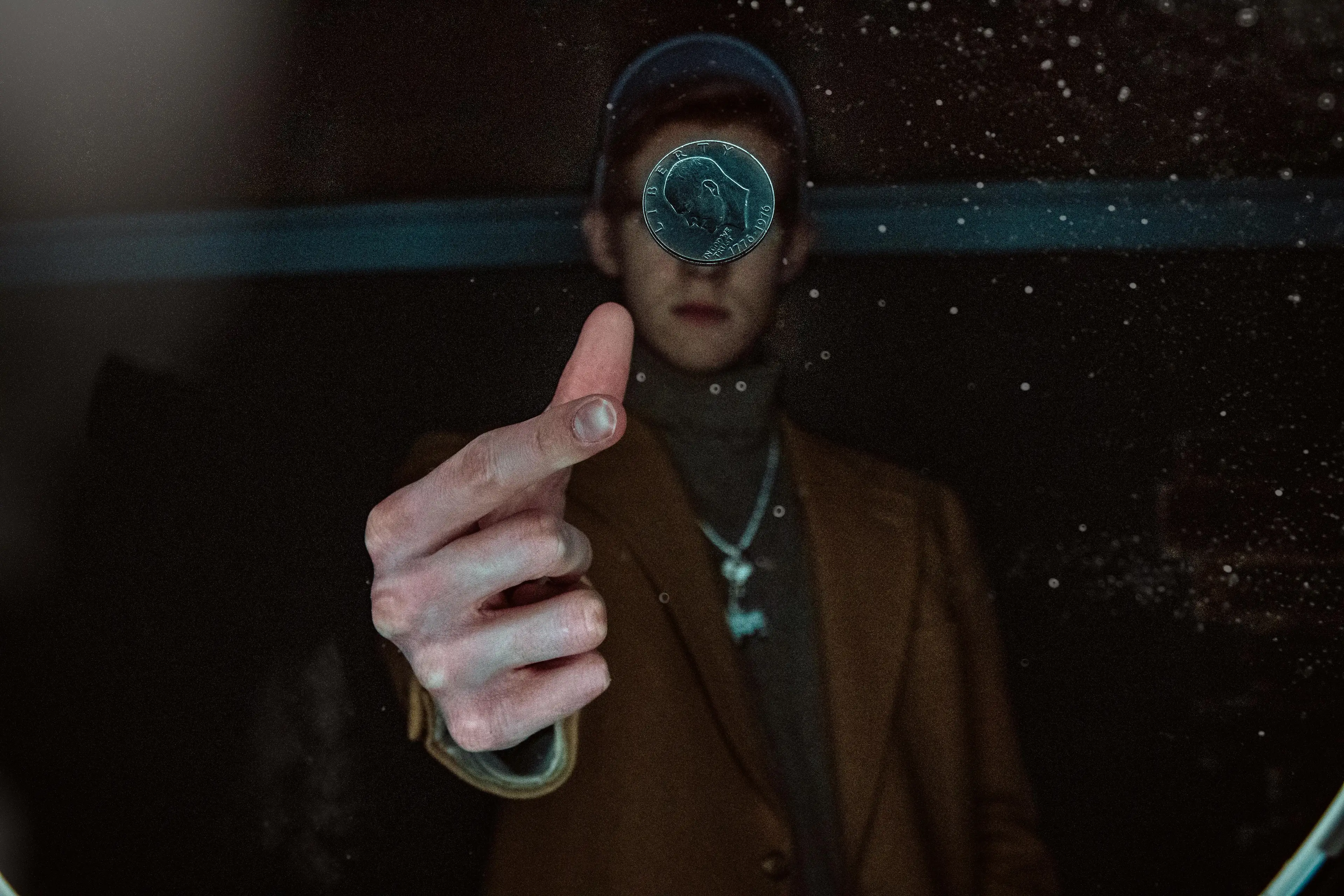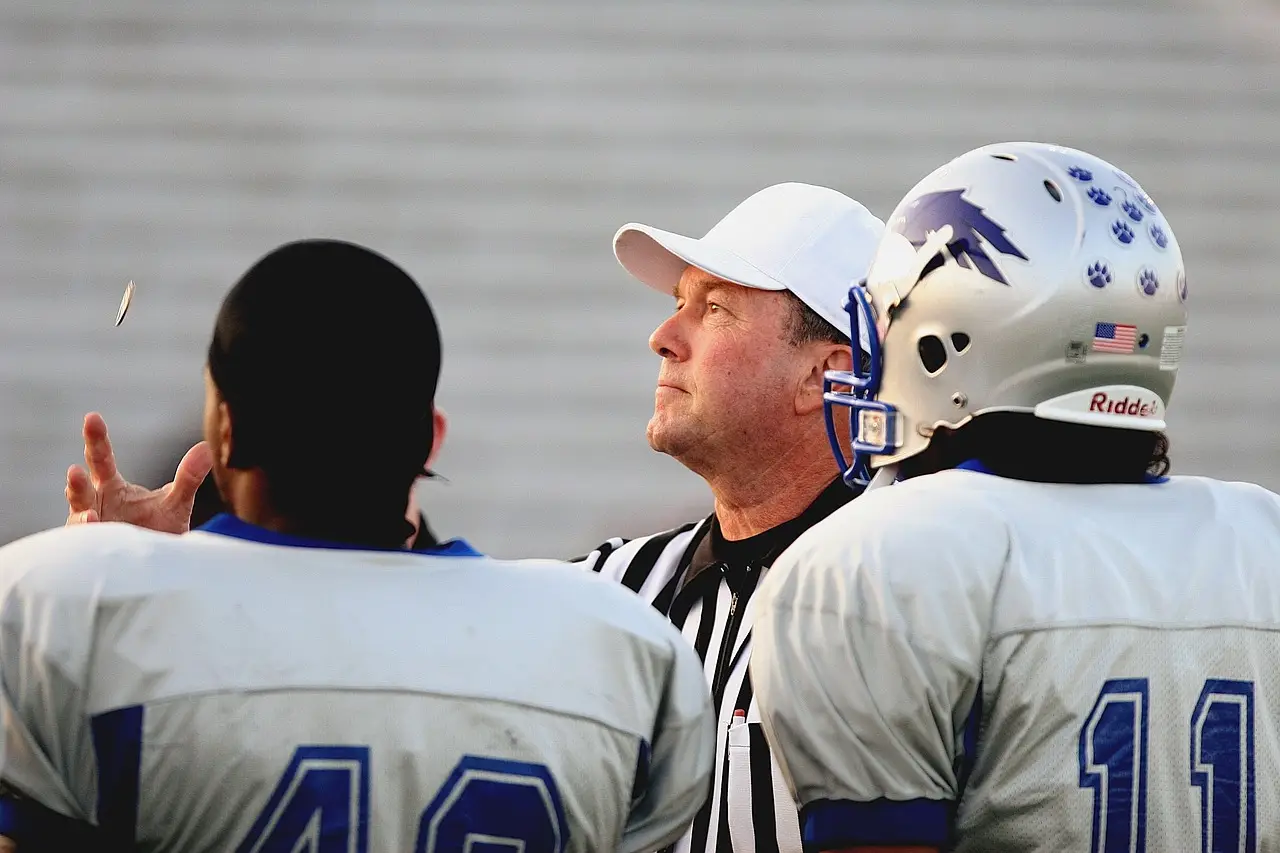
A team of researchers recorded the outcome of more than 350,000 coin tosses to try and prove a theory.
Most of us would assume that the chances of a coin landing on either side is 50/50, right?
And in quest to find out if that’s true, Stanford University Professor Persi Diaconis, who has the unusual pairing of being both a mathematician and magician, conducted an experiment where he found out that it's not - and not only that, but there’s actually a way to tip the odds in your favour.

Advert
Diaconis found that when you flip a coin, you introduce a small amount of wobble to it and this tiny wobble slightly increases the chance of the coin landing on the same side that it started.
Last year, a team decided to test Diaconis’ findings and recorded a whopping 350,757 coin tosses using 48 different participants and 46 different currencies to see the results.
The researchers found that there was a 50.8 percent chance of the coin landing the same side as it started.
So, while the odds are very close to 50/50 - they’re not quite there.
In the paper they wrote: “According to the [Diaconis] model, precession causes the coin to spend more time in the air with the initial side facing up.
“Consequently, the coin has a higher chance of landing on the same side as it started (i.e., ‘same-side bias’).”
They also found that some tossers appeared to show a stronger same-side bias.
Explaining the findings further - within the context of gambling - the team said: "The magnitude of the observed bias can be illustrated using a betting scenario.

"If you bet a dollar on the outcome of a coin toss (i.e. paying 1 dollar to enter, and winning either 0 or 2 dollars depending on the outcome) and repeat the bet 1,000 times, knowing the starting position of the coin toss would earn you 19 dollars on average.
"This is more than the casino advantage for 6 deck blackjack against an optimal-strategy player, where the casino would make 5 dollars on a comparable bet, but less than the casino advantage for single-zero roulette, where the casino would make 27 dollars on average."
So what does all this mean?
Well, if you want to boost your chances of winning a coin toss, make sure you conceal the coin before you flip it or, as the team put it: "When coin flips are used for high-stakes decision-making, the starting position of the coin is best concealed."